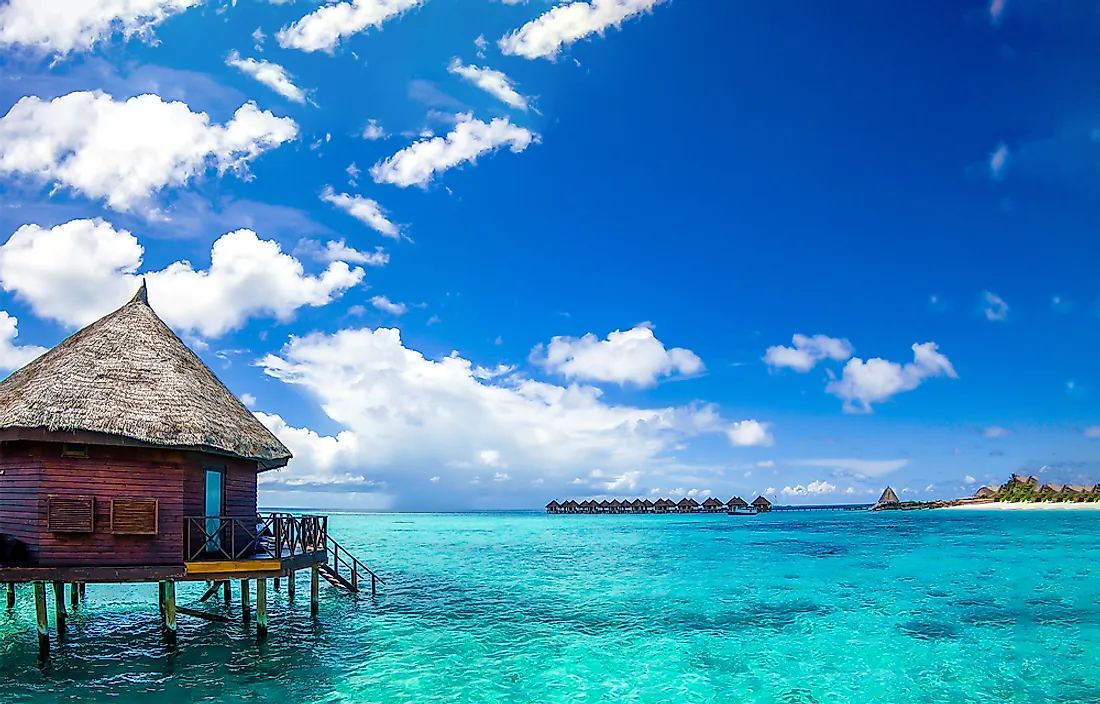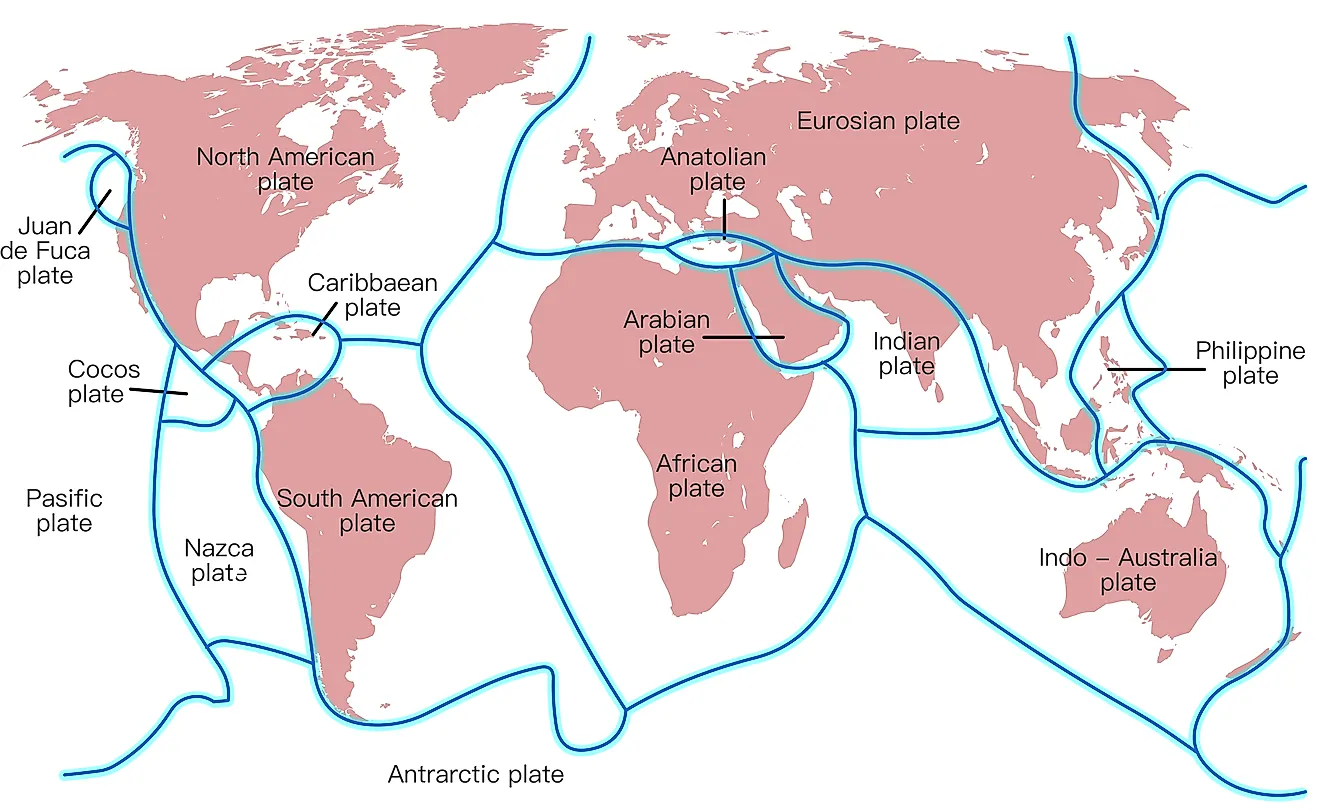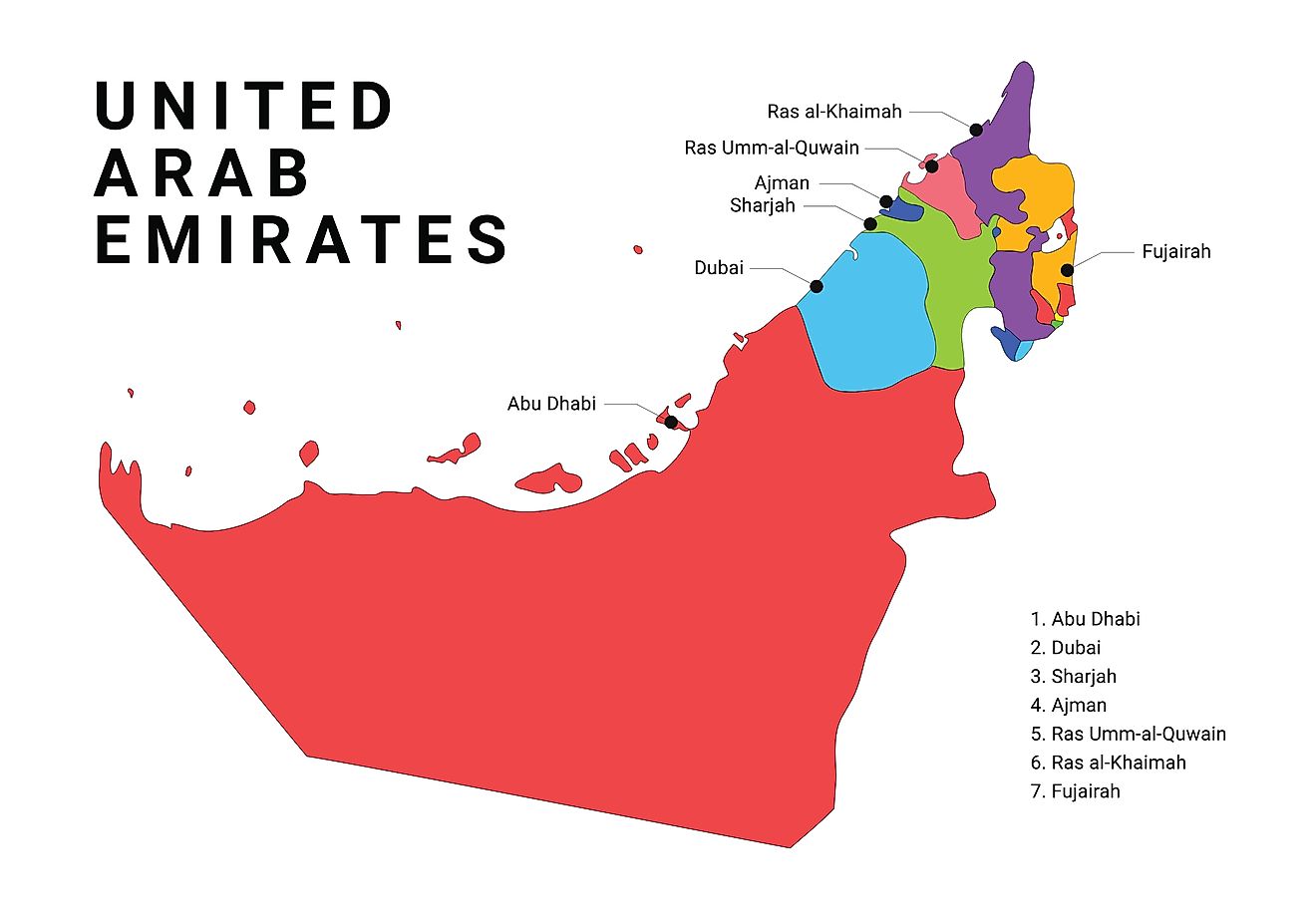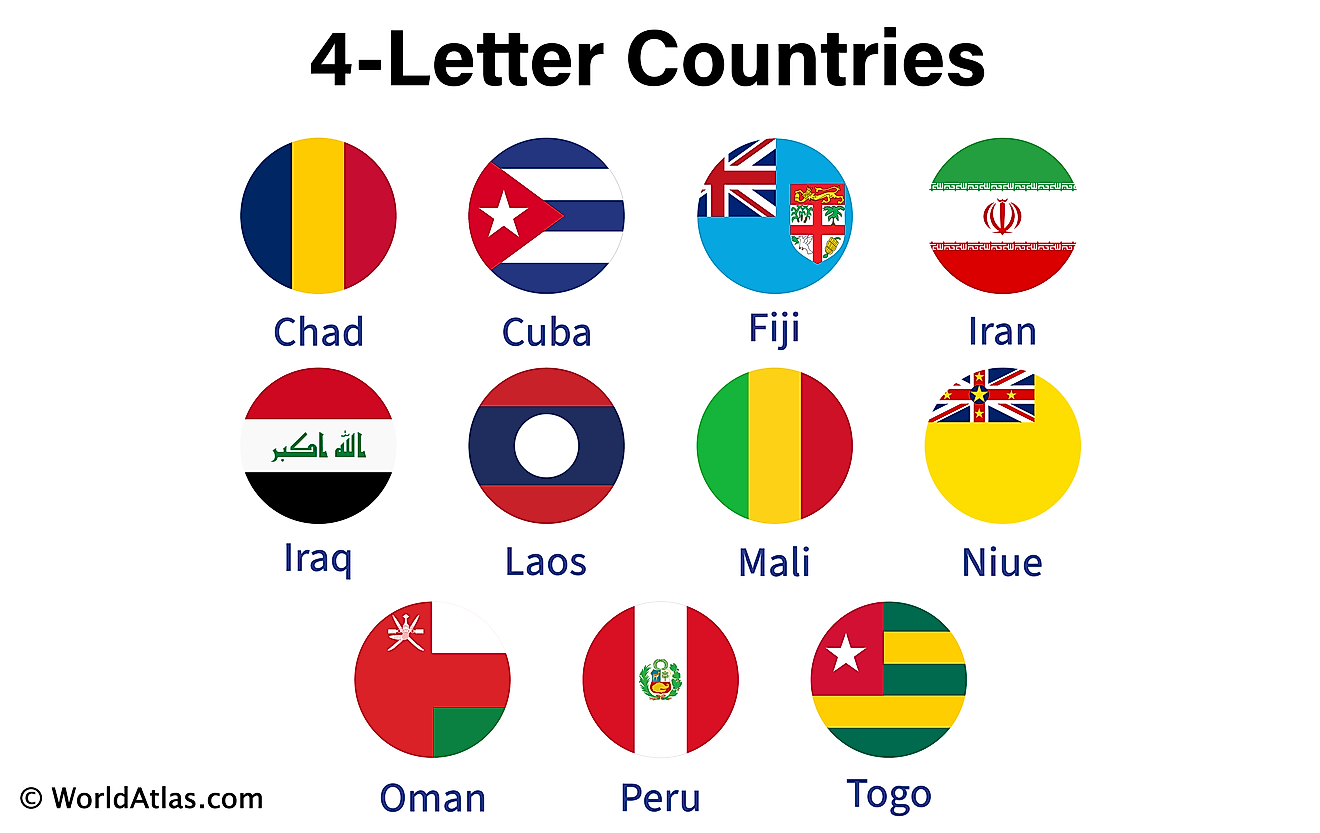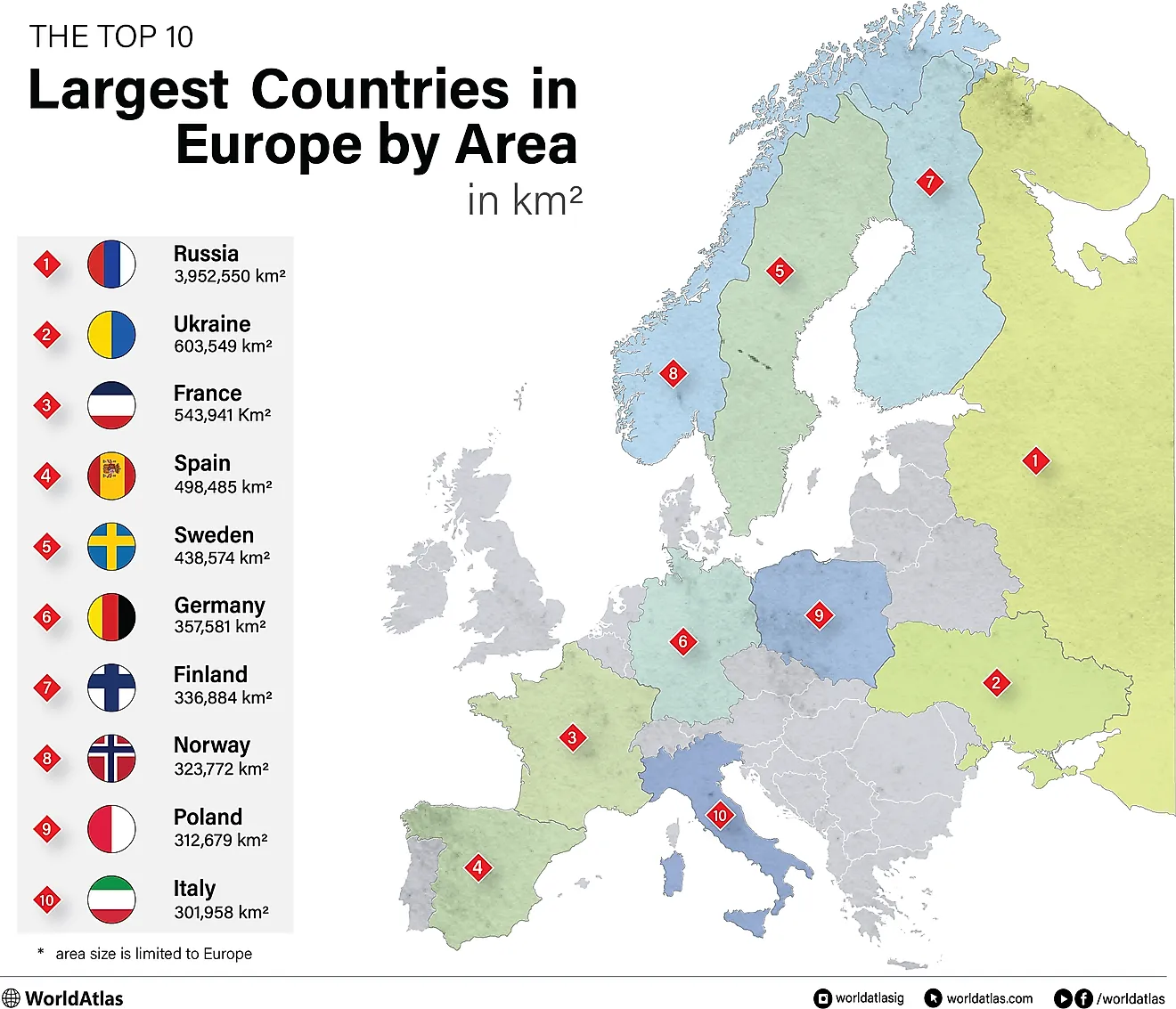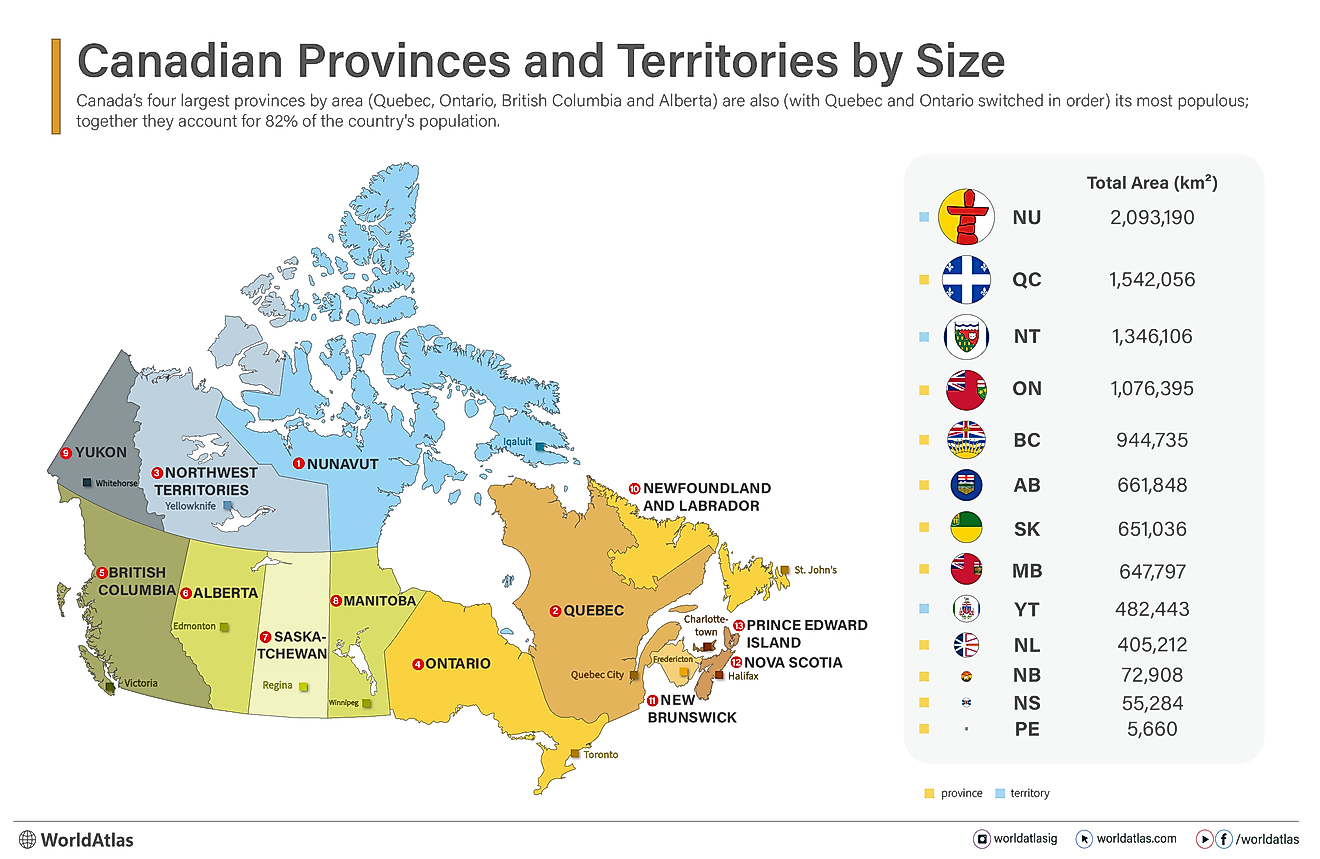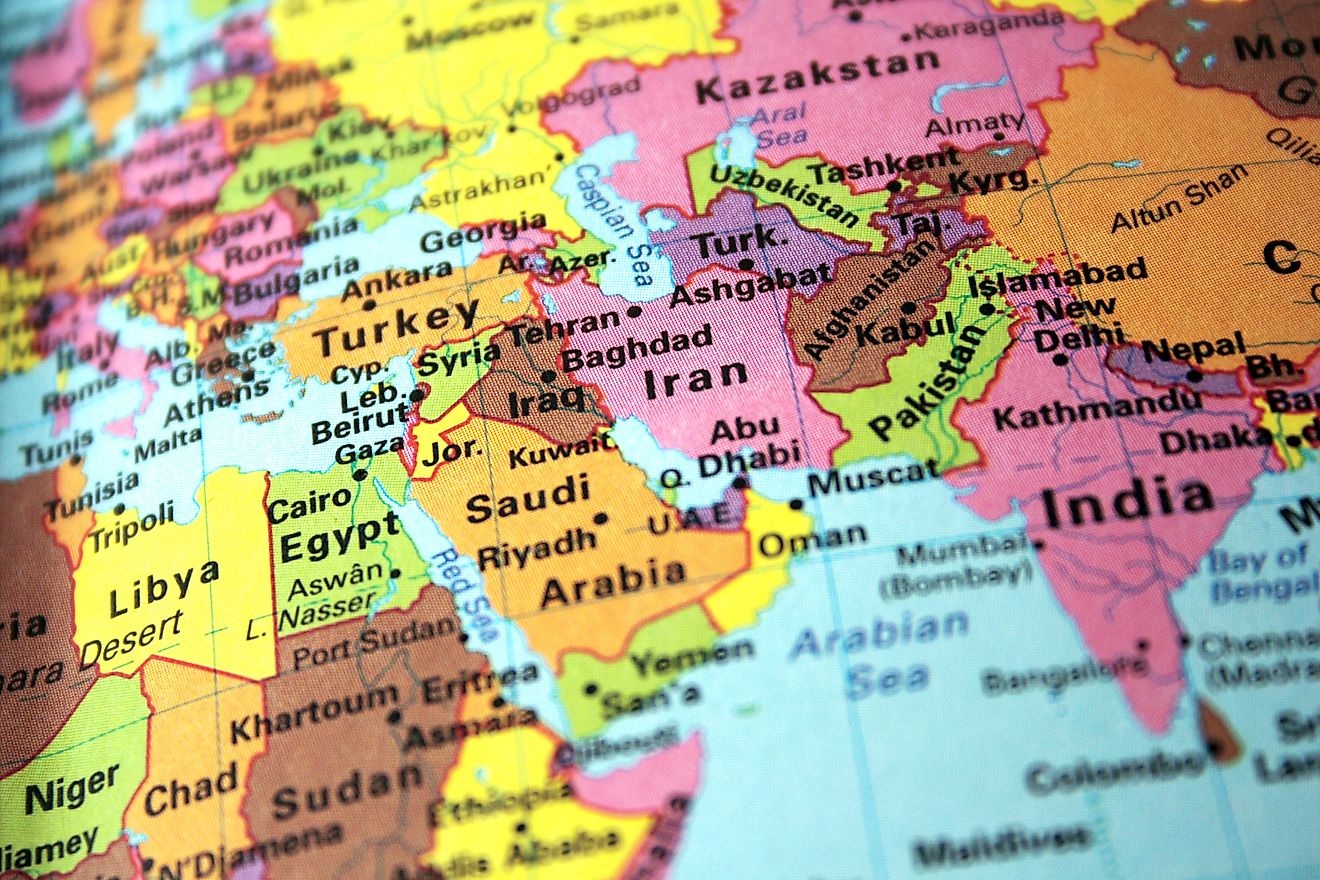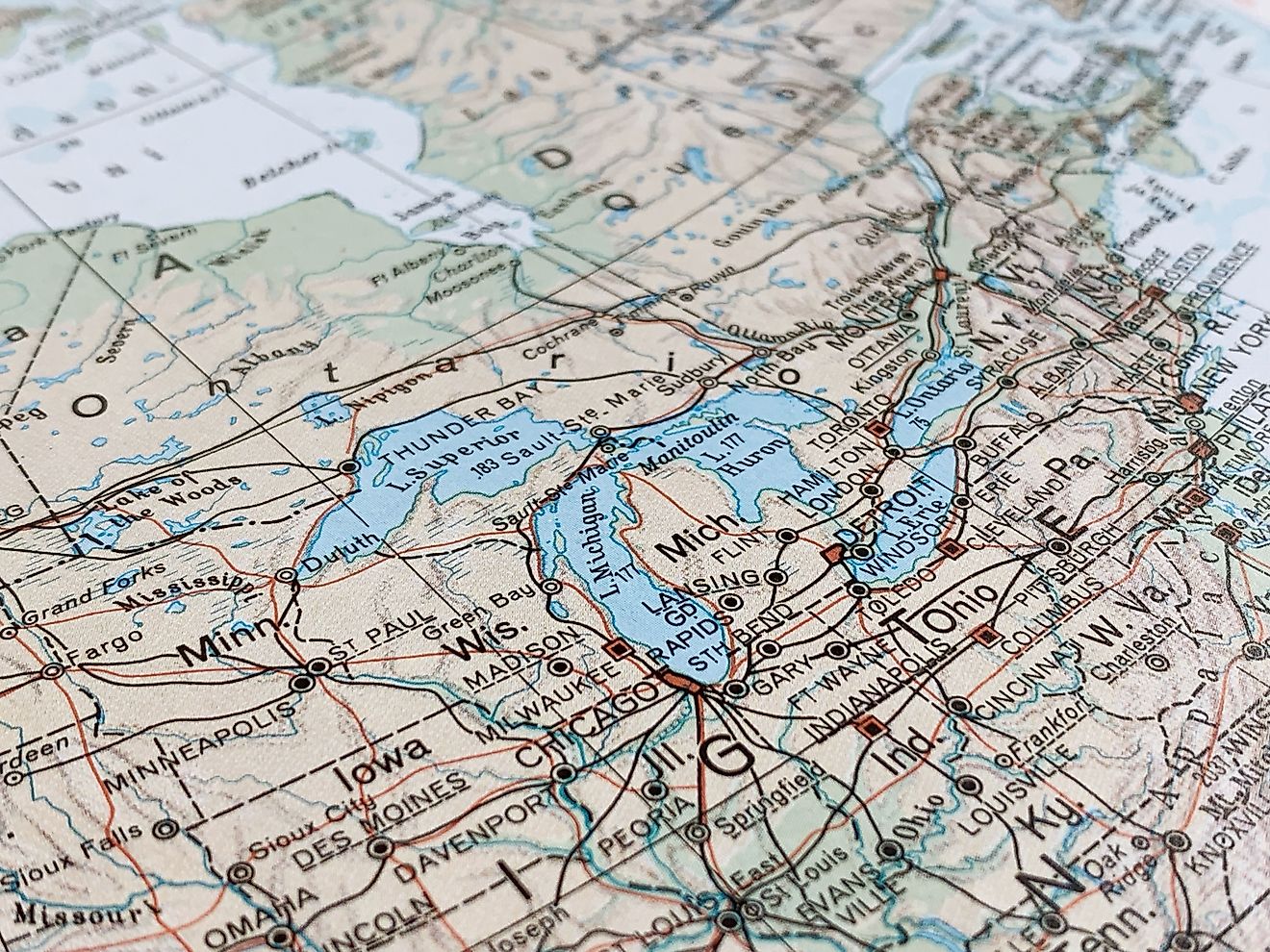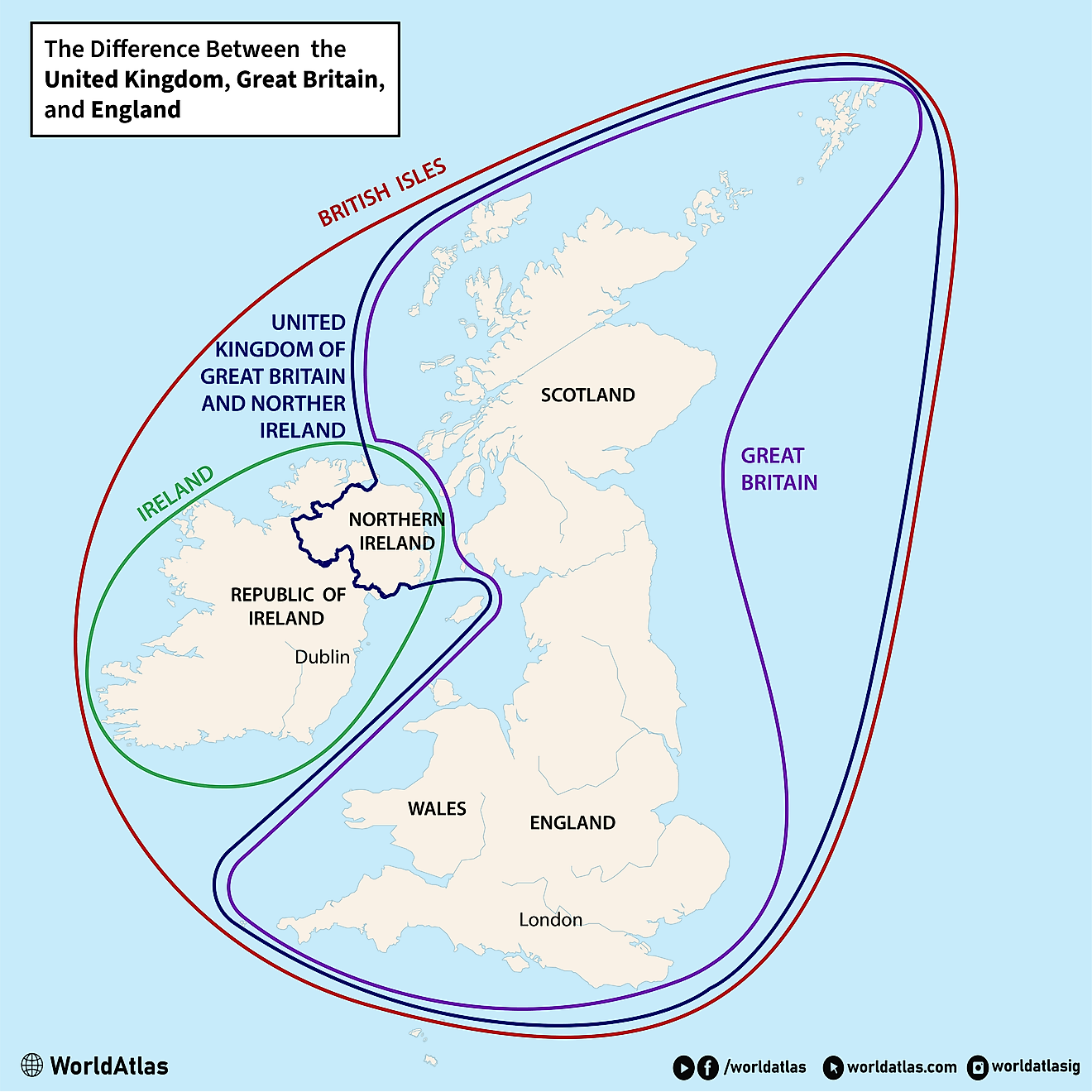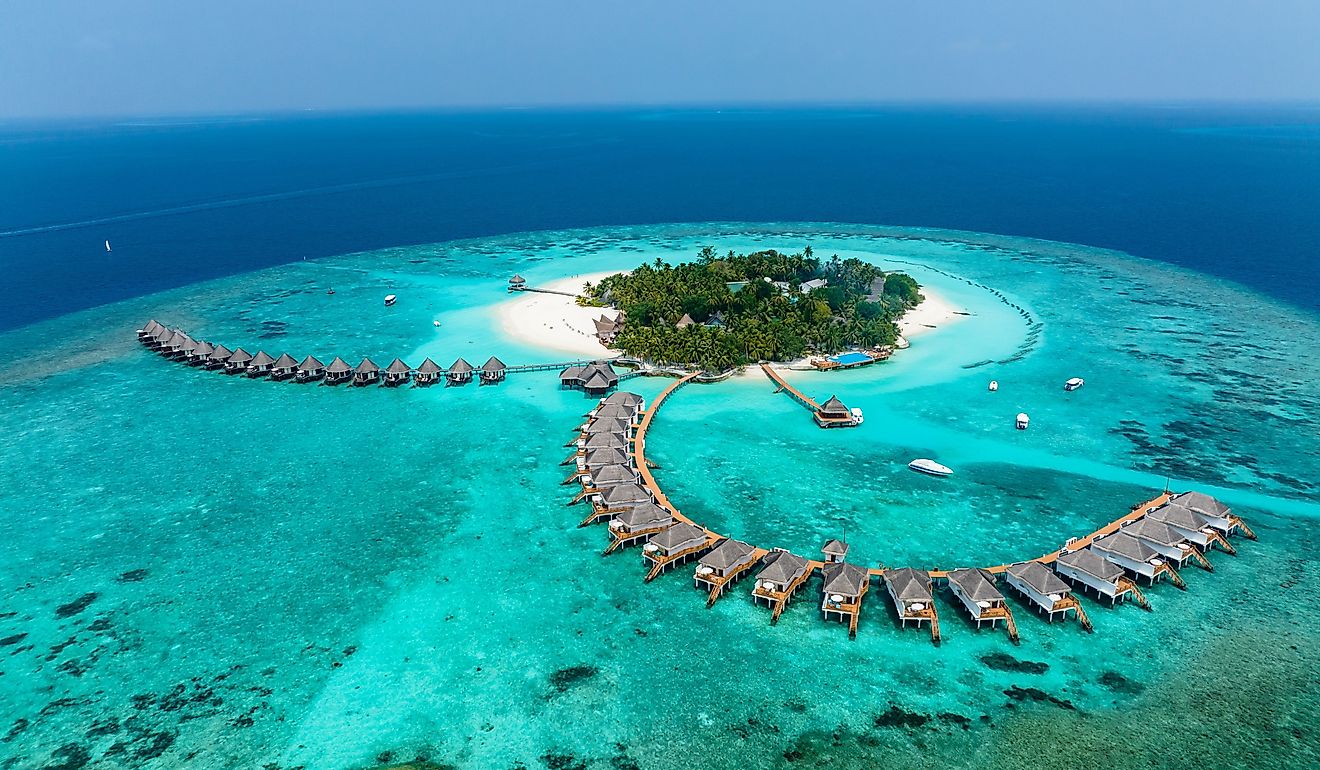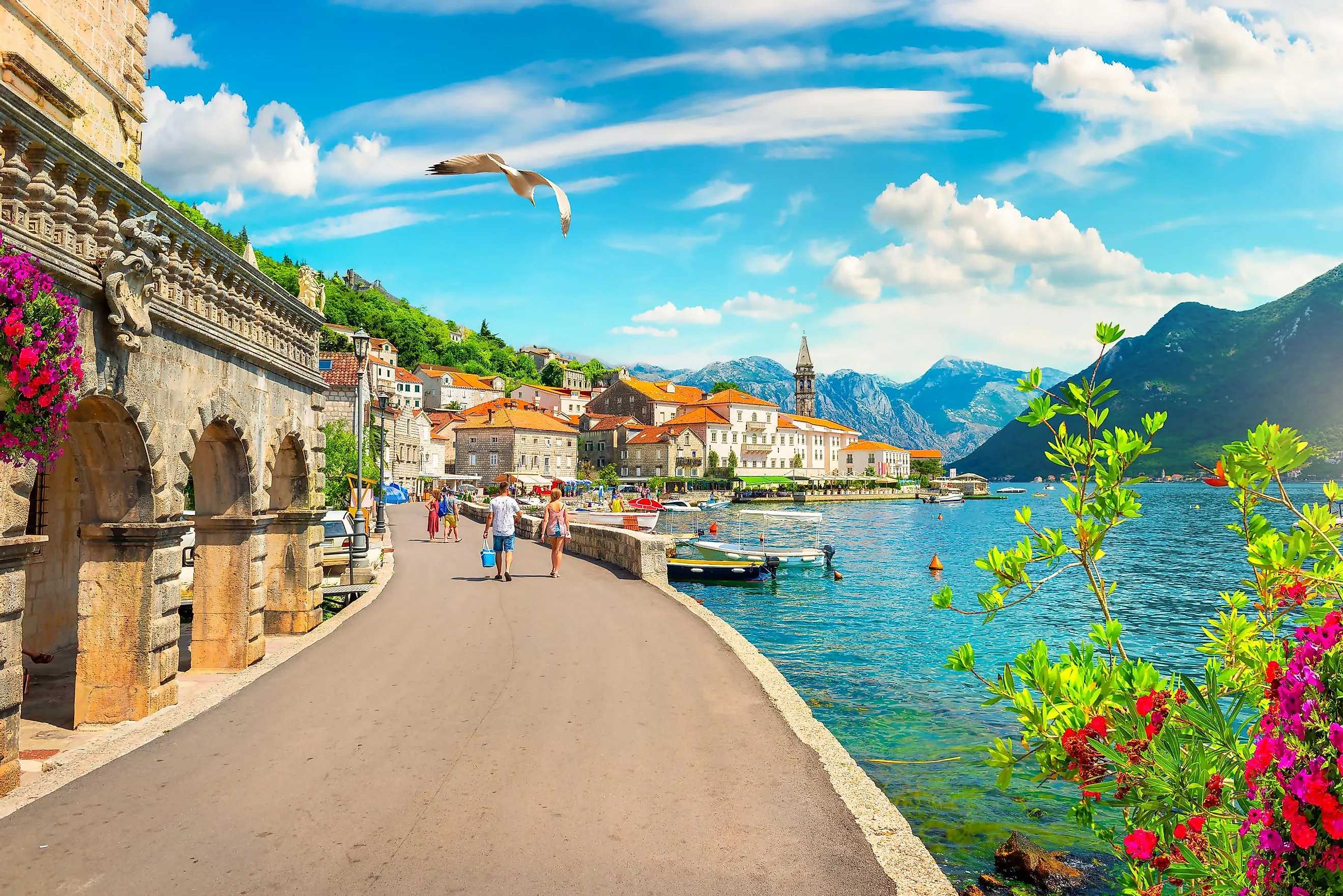
The Smallest Countries in Europe
Small packages often contain the best delights, and the same can be said for these minuscule countries of the European Continent. Vatican City easily takes the lead in terms of pushing boundaries as tightly as possible, with less than a fifth of a square mile in total area. Notably, some countries like Cyprus would rank in the top 10 smallest European countries, but because they are transcontinental, they are only mentioned and not weighed. Unlike a lot of the countries on other continents, in Europe, most of the smallest nations are not islands. In ages past, the expanse of a kingdom's borders defined its success, but in the modern age, you will discover that less-is-more when the communities involved have a lot to offer.
Check out the full ranking of all of Europe's smallest countries.
Top 10 Tinest Countries in Europe
| Rank | Country | Total in km2 (mi2) |
|---|---|---|
| 1 | Vatican City | 0.49 (0.19) |
| 2 | Monaco | 2.0 (0.77) |
| 3 | San Marino | 61 (24) |
| 4 | Liechtenstein | 160 (62) |
| 5 | Malta | 316 (122) |
| 6 | Andorra | 468 (181) |
| 7 | Luxembourg | 2,586 (998) |
| 8 | Montenegro | 13,812 (5,333) |
| 9 | Slovenia | 20,273 (7,827) |
| 10 | North Macedonia | 25,713 (9,928) |
Vatican City - 0.49 km2 (0.19 mi2)
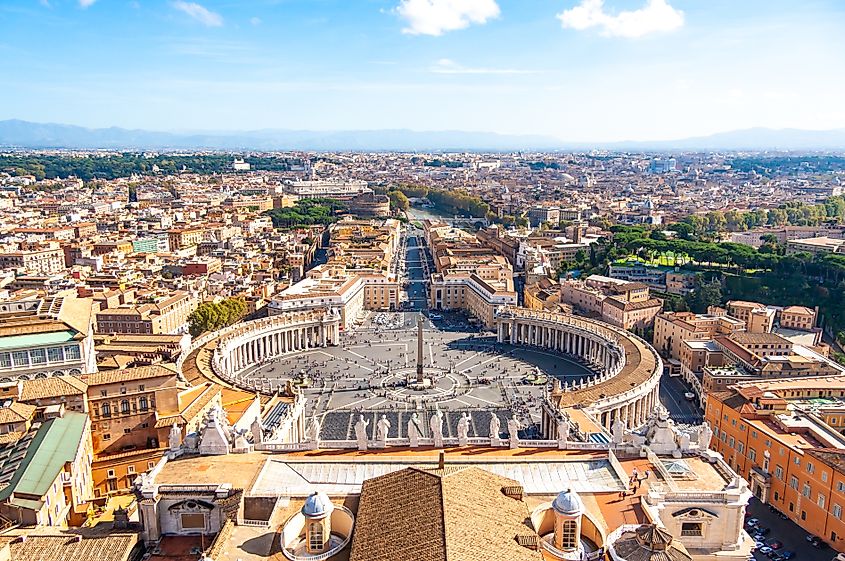
Vatican City, though it covers a diminutive area of 0.19 mi2, embodies immense historical, religious, and cultural significance. It's the global hub of the Roman Catholic Church, featuring the awe-inspiring St. Peter's Basilica and Sistine Chapel. Internationally recognized as an independent city-state enclaved within Rome, Italy, it has its own post office, radio station, and television broadcasting system, making it a small but autonomous country. In addition, the Vatican is home to one of the world's richest libraries, the Vatican Library, housing centuries-old texts and records of undeniable historical importance. In conjunction with its limited physical size, the Vatican has a population of approximately 453 people, largely clergy alongside Swiss Guard.
Monaco - 2.0 km2 (0.77 mi2)
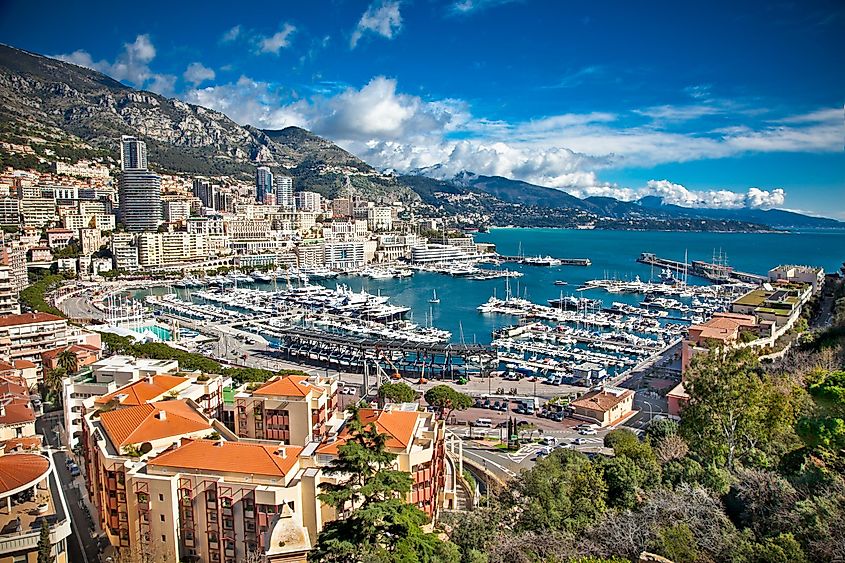
Next on the list is Monaco, with a total area of 0.77 mi2. Despite being one of the world's smallest countries, Monaco has gained an international reputation as a tax haven, hosting thousands of wealthy residents who benefit from its advantageous fiscal policies. It also boasts one of the world's highest GDP per capita, which helps it stand out in a sea of bigger fish. Furthermore, it's renowned for the Monte Carlo Casino, a destination synonymous with luxury and high-stakes gambling. Every year, the city-state hosts the Monaco Grand Prix, one of the world's most prestigious Formula One motor races. The country is also the second smallest monarchy globally, ruled by the Grimaldi family for more than 700 years.
San Marino - 61 km2 (24 mi2)
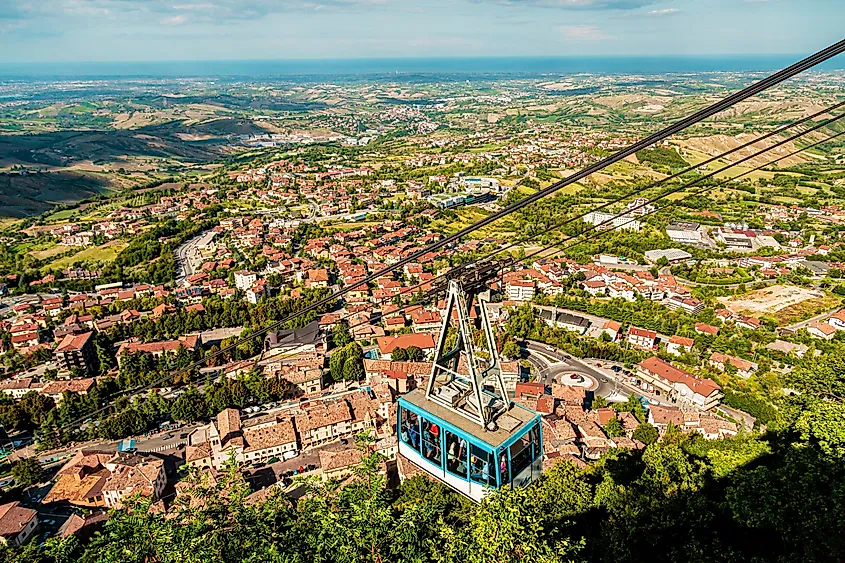
Located just inland of Italy's northeastern coast, the Most Serene Republic of San Marino covers an area of 24 mi2. Known as the oldest sovereign state in the world, San Marino's constitution, enacted in 1600, is the world's oldest document still in effect. The country's economy relies heavily on tourism, finance, and manufacturing of ceramics, tiles, furniture, and wines. Of historical note are the Three Towers of San Marino, medieval fortifications on the peaks of Monte Titano that offer views over the surrounding landscape. In defiance of its small size, San Marino has maintained its independent status for over a millennium. Although it uses the Euro, it mints its own versions, providing a source of national pride and tourist attraction.
Liechtenstein - 160 km2 (62 mi2)
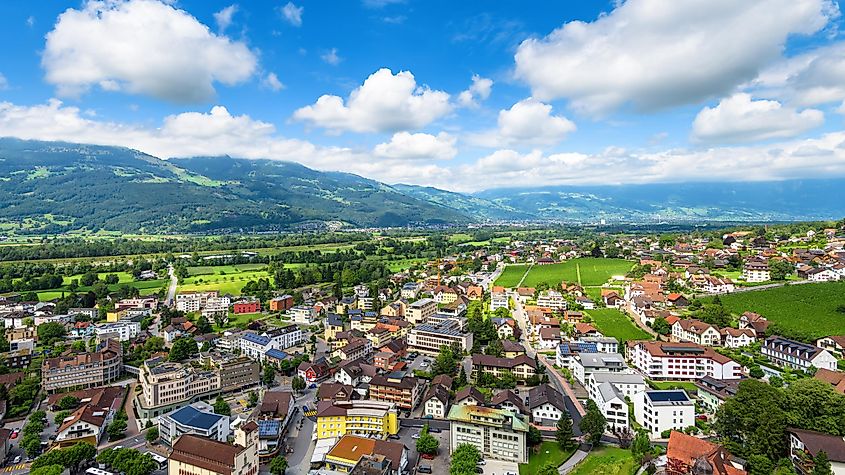
Liechtenstein, spread over an area of 160 mi2, is a doubly landlocked alpine country situated between Switzerland and Austria. It is a constitutional monarchy, ruled by the Prince of Liechtenstein. This small country has a prosperous and highly industrialized free-enterprise economy, with a significant portion of its gross national product derived from financial services. Liechtenstein also has one of the world's lowest unemployment rates, reflecting its economic stability and sound governance. Interestingly, it is one of only two countries in the world (the other being Uzbekistan) doubly landlocked – i.e., completely surrounded by countries that are themselves landlocked.
Malta - 316 km2 (122 mi2)
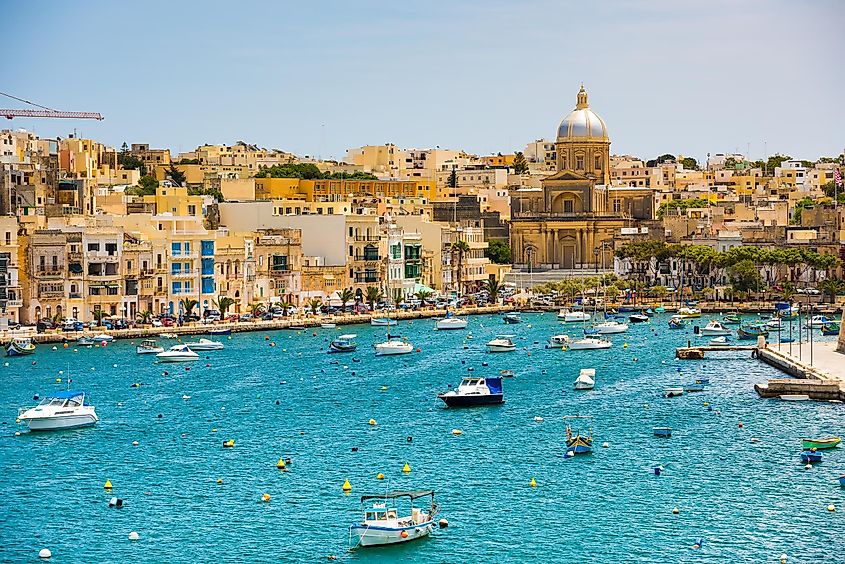
Malta, with its 122 mi2 of territorial extent, is an archipelago in the central Mediterranean. It lies between Sicily and the North African coast. It's known for its rich history dating back to 4000 BC with the megalithic temples, which are among the oldest free-standing structures in the world. In spite of its limited dimensions, Malta was a strategic base for the British during WWII, earning the George Cross for the country's bravery in the conflict. English and Maltese are the country's official languages, reflecting its British colonial history, which lasted until 1964. Malta's economy is heavily dependent on tourism, but it's also known for its well-developed sectors of finance and online gaming (gambling, to be more precise).
Andorra - 468 km2 (181 mi2)
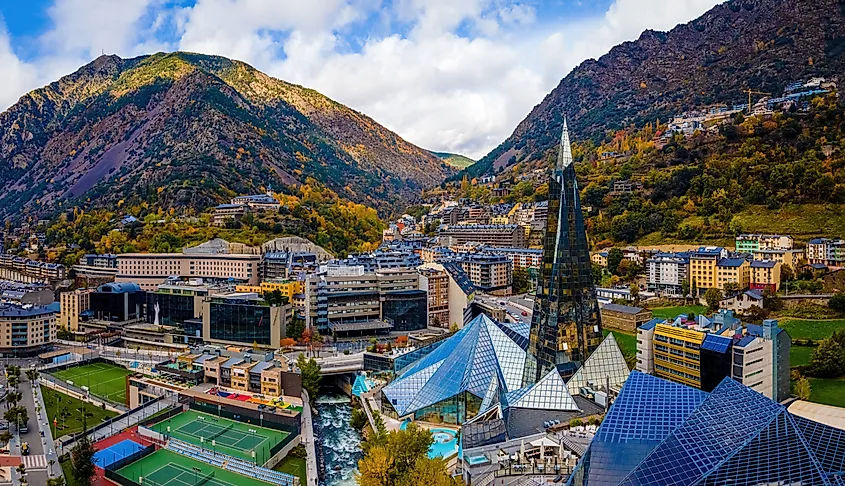
Andorra, covering an area of 181 mi2, is a sovereign landlocked microstate situated in the Pyrenees mountains and bordered by Spain and France. The country's economy is driven primarily by tourism, with approximately 5-8 million visitors annually drawn by winter sports and duty-free shopping. Andorra is also known for its robust healthcare system, having one of the highest life expectancies in the world. Interestingly, it is a co-principality, governed jointly by the President of France and the Bishop of Urgell in Spain. Additionally, Andorra culture runs deep, as seen in it hosting the annual Andorra la Vella Festival, which includes theatrical performances, concerts, and dances.
Luxembourg - 2,586 km2 (998 mi2)
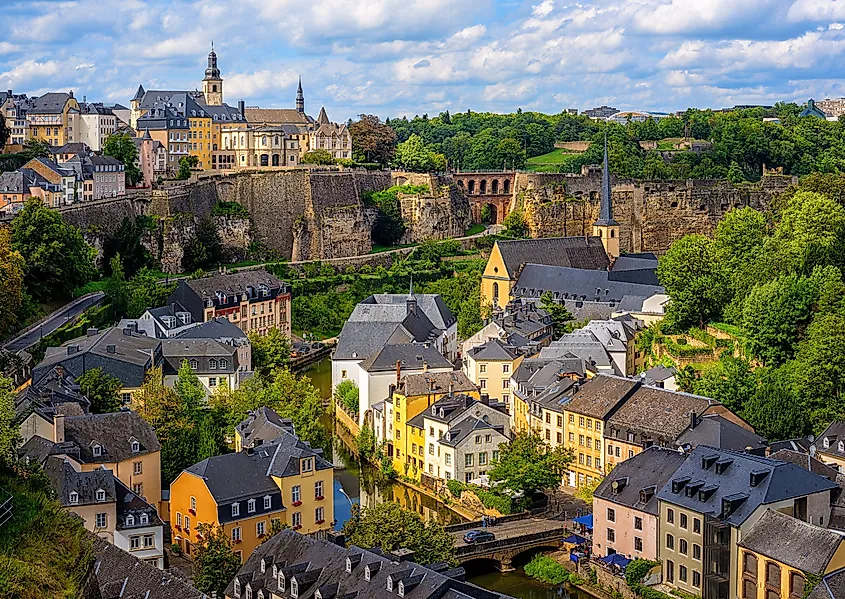
With a land area of 998 mi2, Luxembourg is a small yet highly developed country located in Western Europe. It's a founding member of NATO, the European Union, and the United Nations, playing a significant role in global affairs, regardless of its compact size. Luxembourg's economy, one of the most dynamic in the world, is noted for its pivotal banking sector and status as Europe's most powerful investment management center. The country has three official languages: French, German, and Luxembourgish, illustrating its multicultural aspect. Moreover, Luxembourg City's old town, its capital, is a UNESCO World Heritage Site, acclaimed for its well-preserved historical fortifications and old quarters.
Montenegro - 13,812 km2 (5,333 mi2)
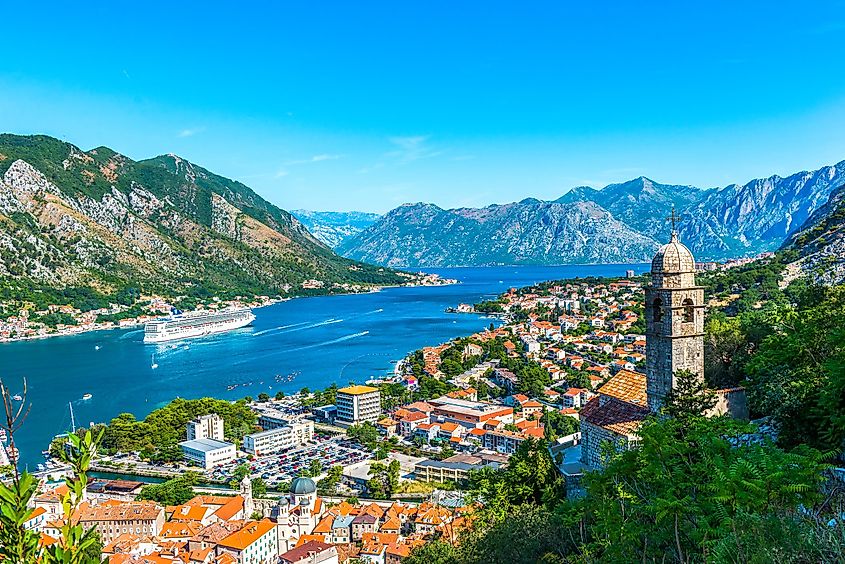
In Southeast Europe, Montenegro, with an area of 5,333 mi2, is a land of high mountain regions, dense forests, and a coastline along the Adriatic Sea. It's one of only a handful of countries to be officially classified as ecological states, emphasizing its commitment to maintaining its biodiversity. Montenegro is known for its historic sites, including the well-preserved medieval towns like Kotor, another UNESCO World Heritage Site. Its economy is largely service-based and is gradually transitioning to a market system.
Slovenia - 20,273 km2 (7,827 mi2)
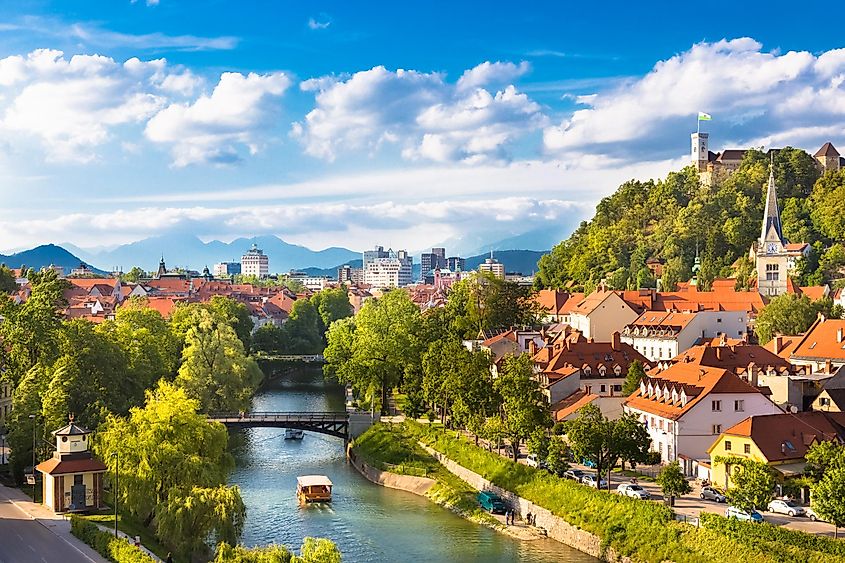
Slovenia, covering an area of 7,827 mi2, is known for its diverse geography, which ranges from the Mediterranean to the Alps and the Pannonian Plain. A member of the European Union, NATO, and the United Nations, Slovenia was the first former Yugoslav republic to join the Eurozone. Its capital, Ljubljana, is often lauded for its environmental initiatives and was named the European Green Capital in 2016. The country's economy leans heavily on tourism, which is due to the country's varied landscapes and appealing culture. Slovenia is also home to the world's oldest vine, the "Zametovka" or "Modra Kavčina," which is over 400 years old and can be found in Maribor.
North Macedonia - 25,713 km2 (9,928 mi2)
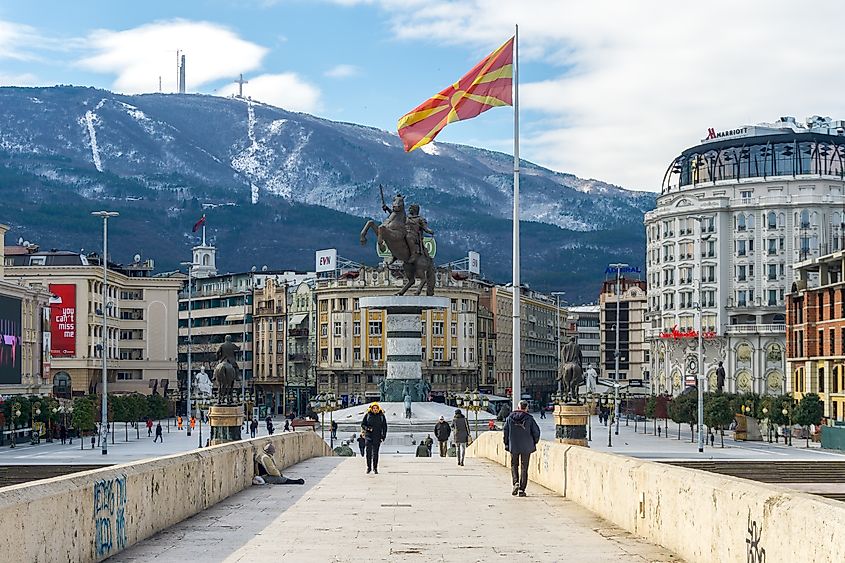
North Macedonia is the largest of Europe's smallest countries, with an area of 9,928 mi2. It's a landlocked country in the Balkan Peninsula known for its diverse culture and history. The country has more than 50 lakes and sixteen mountain peaks over 6,550 feet high, indicative of its surprising geography. North Macedonia's economy is largely driven by sectors like agriculture, metals and metal products, and textiles. Its cultural heritage is celebrated by numerous festivals, including the summer festival of Ohrid, which features concerts, ballet, and other performances. Furthermore, the capital city, Skopje, is noted for its mix of Ottoman and European architecture.
In Summary
All of these countries share a common experience: their citizens likely often express surprise at encountering familiar faces, emphasizing how interconnected their communities are. When we compare the vast expanse of Russia's 6.6 million square miles with tiny territories like Monaco, which spans just 3/4 square miles, it truly highlights the notion of "small worlds." Nevertheless, these countries possess a remarkable amount of cultural depth and individuality within their compact lands, and they have every reason to hold onto their national pride.
Why Are Transcontinental Countries Left Out of Europe?
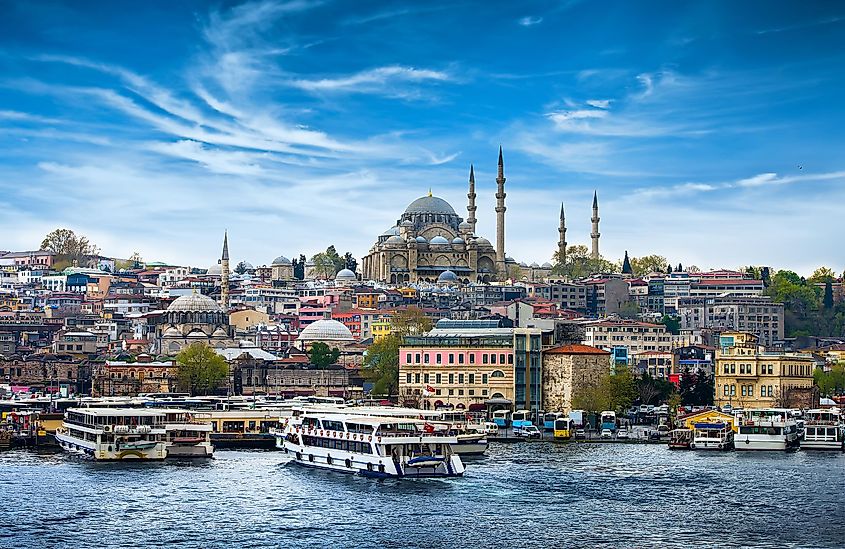
A transcontinental country is a country that spans more than one continent, but this ranking of the smallest European countries does not include these countries. This approach aligns with the United Nations geoscheme. In short, the system categorizes the world's 249 countries nations and territories into different regional groups, primarily for statistical convenience, and does not reflect any assumptions about political or other associations.
Among these transcontinental countries, Russia is an exception. Despite spanning Europe and Asia, the United Nations considers it part of Eastern Europe for an aforementioned statistical convenience, without separating European Russia from Siberian Russia. Its total area is a staggering 17,098,246 km2 (6,601,670 mi2), making it the largest country in the world.
On the other hand, the United Nations does not consider either Turkey, with its total area of 783,562 km2 (302,535 mi2), or Kazakhstan, which spans 2,724,900 km2 (1,052,100 mi2), as European countries. This is because they have significant land in both Europe and Asia. Azerbaijan and Georgia also have parts of their territories on both continents, with total areas of 86,600 km2 (33,400 mi2) and 69,700 km2 (26,900 mi2), respectively.
Despite being culturally and historically linked with Europe, Armenia is geopolitically associated with Asia. Its total area is 29,743 km2 (11,484 mi2). Lastly, although often culturally and politically associated with Europe, Cyprus geographically belongs to Western Asia. It covers a miniscule area of 9,251 km2 (3,572 mi2), and would be Europe's 8th-smallest country, ahead of Montenegro, if it were in Europe.
Smallest Countries In Europe By Total Area
| Rank | Country | Total in km2 (mi2) |
|---|---|---|
| 1 | Vatican City | 0.49 (0.19) |
| 2 | Monaco | 2.0 (0.77) |
| 3 | San Marino | 61 (24) |
| 4 | Liechtenstein | 160 (62) |
| 5 | Malta | 316 (122) |
| 6 | Andorra | 468 (181) |
| 7 | Luxembourg | 2,586 (998) |
| - | Cyprus | 9,251 (3,572) |
| 8 | Montenegro | 13,812 (5,333) |
| 9 | Slovenia | 20,273 (7,827) |
| 10 | North Macedonia | 25,713 (9,928) |
| 11 | Albania | 28,748 (11,100) |
| - | Armenia | 29,743 (11,484) |
| 12 | Belgium | 30,528 (11,787) |
| 13 | Moldova | 33,846 (13,068) |
| 14 | Switzerland | 41,284 (15,940) |
| 15 | Netherlands | 41,850 (16,160) |
| 16 | Denmark | 43,094 (16,639) |
| 17 | Estonia | 45,227 (17,462) |
| 18 | Slovakia | 49,037 (18,933) |
| 19 | Bosnia and Herzegovina | 51,209 (19,772) |
| 20 | Croatia | 56,594 (21,851) |
| 21 | Latvia | 64,559 (24,926) |
| 22 | Lithuania | 65,300 (25,200) |
| - | Georgia | 69,700 (26,900) |
| 23 | Ireland | 70,273 (27,133) |
| 24 | Czech Republic | 78,871 (30,452) |
| 25 | Austria | 83,871 (32,383) |
| - | Azerbaijan | 86,600 (33,400) |
| 26 | Serbia | 88,361 (34,116) |
| 27 | Portugal | 92,226 (35,609) |
| 28 | Hungary | 93,028 (35,918) |
| 29 | Iceland | 103,000 (40,000) |
| 30 | Bulgaria | 111,002 (42,858) |
| 31 | Greece | 131,957 (50,949) |
| 32 | Romania | 238,397 (92,046) |
| 33 | United Kingdom | 242,495 (93,628) |
| 34 | Italy | 301,339 (116,348) |
| 35 | Poland | 312,696 (120,733) |
| 36 | Finland | 338,425 (130,667) |
| 37 | Germany | 357,114 (137,882) |
| 38 | Japan | 377,976 (145,937) |
| 39 | Norway | 385,207 (148,729) |
| 40 | Sweden | 447,425 (172,752) |
| 41 | Spain | 505,992 (195,365) |
| 42 | Ukraine | 603,550 (233,030) |
| 43 | France | 640,679 (247,368) |
| - | Turkey | 783,562 (302,535) |
| - | Kazkhistan | 2,724,900 (1,052,100) |
| 44 | Russia | 17,098,246 (6,601,670) |
(-) Unranked nations are transcontinental, and thus not always considered a part of Europe.
